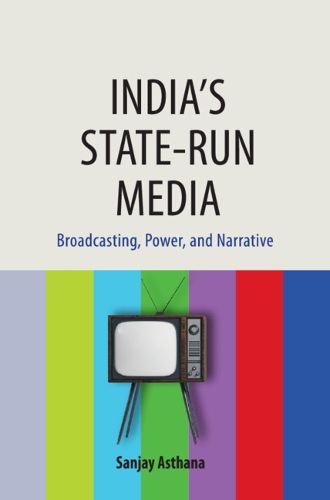Readings Newsletter
Become a Readings Member to make your shopping experience even easier.
Sign in or sign up for free!
You’re not far away from qualifying for FREE standard shipping within Australia
You’ve qualified for FREE standard shipping within Australia
The cart is loading…






India’s State-run Media presents a new perspective on broadcasting by bringing together two neglected areas of research in media studies in India - the intertwined genealogies of sovereignty, public, religion, and nation in radio and television, and the spatiotemporal dynamics of broadcasting into a single analytic inquiry. It argues that the spatiotemporalities of broadcasting and the inter-relationships among the public, religion, and nation can be traced to an organizing concept that shaped India’s late colonial and postcolonial histories - sovereignty. The book contends that studies of television have glossed over the meanings, experiences, and practices of the religious in televisual narratives and viewers’ interpretations of television programs. Drawing on the philosophical writings of Paul Ricoeur and Michel Foucault, connecting their ideas with media, cultural, and religious studies, it examines cultural discourses, power relations, repertoire of meanings, social events, etc. in broadcasting in late colonial and postcolonial India.
$9.00 standard shipping within Australia
FREE standard shipping within Australia for orders over $100.00
Express & International shipping calculated at checkout
India’s State-run Media presents a new perspective on broadcasting by bringing together two neglected areas of research in media studies in India - the intertwined genealogies of sovereignty, public, religion, and nation in radio and television, and the spatiotemporal dynamics of broadcasting into a single analytic inquiry. It argues that the spatiotemporalities of broadcasting and the inter-relationships among the public, religion, and nation can be traced to an organizing concept that shaped India’s late colonial and postcolonial histories - sovereignty. The book contends that studies of television have glossed over the meanings, experiences, and practices of the religious in televisual narratives and viewers’ interpretations of television programs. Drawing on the philosophical writings of Paul Ricoeur and Michel Foucault, connecting their ideas with media, cultural, and religious studies, it examines cultural discourses, power relations, repertoire of meanings, social events, etc. in broadcasting in late colonial and postcolonial India.